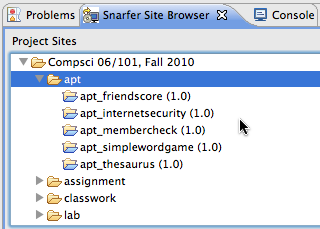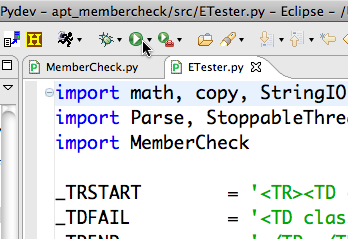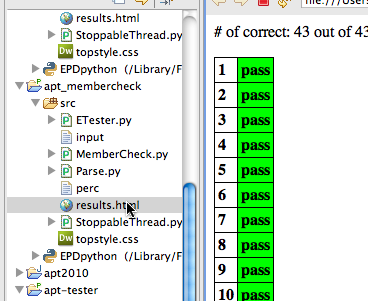
Use the Ambient Snarfer Site window and choose one of the APTs you want to snarf as shown in the screen capture below.

After snarfing the APT, you'll need to create a Python module that's
specific to the APT you're doing. Every APT you snarf will have
several files in the src folder including python modules
ETester.py,
Parse.py, and
StoppableThread.py. These are part of the APT testing
framework and you can ignore them (except for
ETester.py which you'll run as shown below)
In the example shown here, I created MemberCheck.py in the
src
folder just as though you'd create in when doing an APT, but the folder
is specified as apt_membercheck via snarf. In the
screen capture below you can see that I've created
MemberCheck.py
in the snarfed project and I'm ready to test a simple (and wrong) implementation.

Instead of running MemberCheck.py you need to run the
module
ETester.py which will all the code you wrote in
MemberCheck.py. For every APT you implement in Ecilpse,
you'll run ETester.py to test the module and function
you wrote for the APT. The ETester.py module you
snarf is specific to the APT you're doing. Below is a screen shot
as I am about to run the ETester.py module, which will call
the code I wrote in MemberCheck.py so I can test my code.

Running ETester.py will generate two files in the
src folder. One called results.html
and
one called perc. To see these in the folder you may need to
select src and right-click and select Refresh. Then you can
simply click on the results.html file to see your
results. In the screen shot below I show my all-green result
after fixing my implementation.
